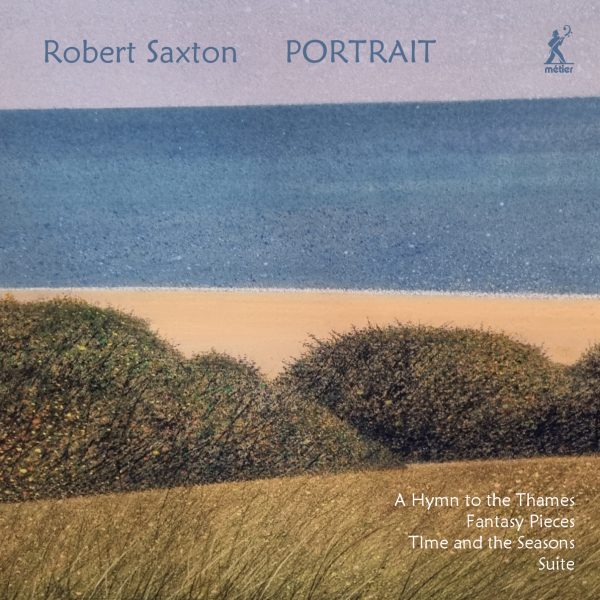Fanfare
This disc is called Robert Saxton PORTRAIT. Saxton (b. 1953) was professor of composition at Oxford University until his retirement in 2021. Three of his 12 entries in the Fanfare Archive are for all-Saxton discs; all three contain early works from the 1980s and 1990s. Jim Svejda found listening to Saxton’s 1981 Piano Sonata like “chewing on ground glass” (Fanfare 42:1). Stephen Ellis in 14:1 (September/October 1990) heard “wonderfully evocative contemporary music,” and Peter J.Rabinowitz in 15:6 found “a potentially important young voice” writing “fairly accessible” music in a “full-bodied post-Bergian expressionist vocabulary.”
The four sets of works on this Metier disc were all written from 2013 to 2020, and it is clear that Saxton has mellowed in his later years. A Hymn to the Thames portrays the English river running gently from its source to the sea; a solo oboe plays multiple roles along the way. Despite 100 years of harmonic advances and a bit of backsliding, Smetana’s Moldau is recalled, flowing through Prague. Saxon lived close to the Thames for much of his life, and it obviously means a great deal to him, which he succeeds in conveying to us. St Paul’s Sinfonia is a modem chamber orchestra with strings 8/6/5/4/3 and double winds.
The six Fantasy Pieces are for piano trio. Though merely numbered, they express clearly differentiated moods, all of them serious. A five-minute finale reaches and passes through an hysterical climax. Times and the Seasons are seven songs to Saxton’s own poetry (printed in the booklet), written many years earlier. The first, “Winter, still winter” carries off the extraordinary feat of being sung on a single tone, while the accompaniment swirls around it. All seven follow calm, simple lines decorated by the piano.
The 2014 Suite, for violin and piano, consists of five movements: “Awakening,” “Horizon,” “Jacob and the Angel,” “Bells of Memory,” and “Quest.” They encompass a variety of musical outpourings, welcome after the often drab vocal writing. A wide range of tempos and dynamics asks for and gets virtuoso responses. The performers are well-known British artists, their resumes packed by performances and recordings with major and minor British (but also world-wide) opera companies and ensembles. Did you know there is a Wimbledon Symphony Orchestra? The performances leave nothing to complain about, but one feels that a few superstars might have injected more life into the proceedings. The recorded sound, from four occasions at four venues, is satisfactory, but greater color (OK.: colour) would enliven both performances and music.
@divineartrecordingsgroup
A First Inversion Company
Registered Office:
176-178 Pontefract Road, Cudworth, Barnsley S72 8BE
+44 1226 596703
Fort Worth, TX 76110
+1.682.233.4978












